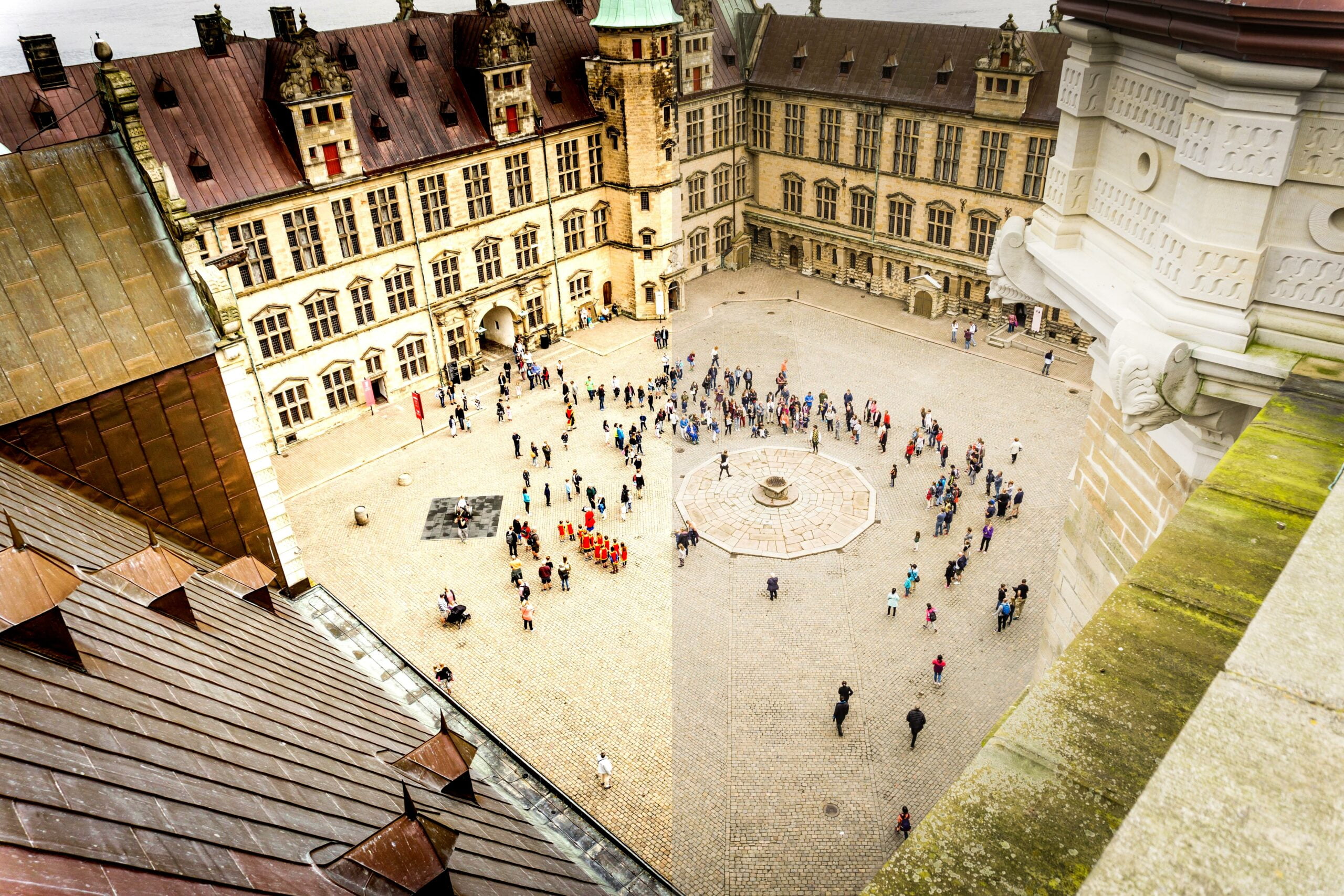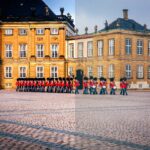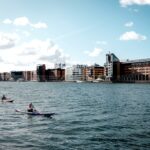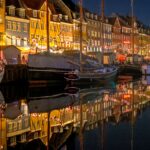Welcome to the awe-inspiring world of Denmark! This Scandinavian gem is about to reveal its hidden charms and captivating secrets. Picture yourself strolling through the vibrant streets of Copenhagen, surrounded by architectural wonders. Venture beyond the city limits to encounter breathtaking landscapes that will leave you spellbound. Join us on this enchanting journey as we unlock the mysteries of Denmark, a land where history, culture, and natural beauty intertwine seamlessly.
Facts About Denmark
Denmark, a land of fairy tales and happy people, holds a special charm. Let’s dive into some fascinating facts about this Nordic nation:
1. The Art of Hygge
Imagine this: it’s a chilly evening, you’re curled up on a comfy sofa, soft candlelight fills the room, and a warm drink rests in your hand. This, my friend, is “hygge,” a Danish concept that’s all about embracing coziness and finding joy in simple pleasures. Danes are experts at creating these warm and inviting atmospheres, turning their homes into havens of relaxation and contentment.
2. Where Fairy Tales Come to Life
Remember those magical stories we loved as kids? Well, many of them sprung from the imagination of Hans Christian Andersen, a Danish author whose fairy tales continue to enchant readers of all ages. From the courageous Little Mermaid to the enduring Ugly Duckling, Andersen’s stories have become timeless classics, reminding us of the power of hope, kindness, and imagination.
3. The Land of Lego
Who hasn’t spent hours lost in the world of Lego, those colorful bricks that spark endless creativity? Well, these iconic toys were born in Denmark thanks to Ole Kirk Christiansen. What began as a small carpenter’s workshop has transformed into a global phenomenon, inspiring generations to build, create, and let their imaginations soar.
4. Pioneering a Green Future
Denmark is a true leader when it comes to renewable energy. Imagine a country powered by wind and sunshine! With ambitious goals to become carbon neutral, Denmark is setting a remarkable example for a sustainable future, proving that economic growth and environmental responsibility can go hand in hand.
5. Design that Inspires
Danish design is admired worldwide for its elegant simplicity and focus on functionality. From sleek furniture to stylish homeware, Danish design prioritizes clean lines, natural materials, and timeless aesthetics. Companies like Bang & Olufsen, known for their high-end audio equipment, and Gubi, celebrated for their iconic furniture designs, embody this design philosophy, creating products that are both beautiful and purposeful.
6. Echoes of Vikings
Venture back in time, and you’ll discover Denmark’s rich Viking heritage. These skilled seafarers, known for their adventurous spirit and impressive shipbuilding, left a lasting impact on European history. Today, their legacy lives on in Denmark’s cultural traditions, archaeological sites, and even in the names of towns and villages scattered across the country.
7. A Monarchy with Deep Roots
Denmark boasts one of the oldest monarchies in the world, with a royal lineage stretching back over a thousand years. The current queen, Margrethe II, enjoys immense popularity among her people. Known for her artistic talents and down-to-earth personality, she embodies the values of her nation and has steered Denmark through times of change and prosperity.
8. A Recipe for Happiness
What makes Denmark one of the happiest countries in the world? While the answer is complex, some factors stand out. Denmark boasts excellent healthcare, high-quality education, and a strong social safety net. Danes generally enjoy a good work-life balance, with an emphasis on spending time with loved ones and pursuing personal interests – elements that contribute to a sense of overall well-being.
9. Where Bikes Rule the Roads
Copenhagen, Denmark’s vibrant capital, is a cyclist’s paradise. Picture this: dedicated bike lanes that weave through the city, traffic lights timed for cyclists, and more bikes than cars! This commitment to cycling makes Copenhagen a greener, healthier, and more livable city, where two-wheeled transportation reigns supreme.
10. The Timeless Magic of Tivoli Gardens
Step into a world of wonder at Tivoli Gardens, one of the oldest amusement parks in the world, nestled in the heart of Copenhagen. This enchanting destination captivates visitors with its charming rides, lush gardens, and lively entertainment. Tivoli Gardens isn’t just an amusement park; it’s a treasured landmark that has brought joy to generations of Danes and visitors alike.
If you want to explore Denmark, do not miss the Wonderful Copenhagen, the capital of Denmark. Check This Out to start planning your trip to Copenhagen and discover all the attractions and activities in the city.
What are 5 interesting facts about Denmark?
We’ve uncovered some fascinating aspects of Denmark, but this Scandinavian nation has even more surprises in store. Here are a few intriguing facts that might just pique your curiosity:
- Royalty Reigns Supreme: Denmark boasts the oldest monarchy on the planet, with a royal lineage spanning over a millennium! It’s a testament to the country’s enduring traditions and historical significance.
- Two-Wheeled Wonders: Forget cars; bikes are the preferred mode of transportation in Denmark! With more bicycles than cars, it’s no wonder they’re considered one of the healthiest and happiest nations. Cycling is deeply ingrained in their culture, contributing to a greener and more sustainable way of life.
- The Birthplace of LEGO: Those colorful bricks that have sparked the imaginations of generations? Yes, LEGO is a Danish invention! From humble beginnings in a carpenter’s workshop, LEGO has become a global phenomenon, synonymous with creativity and endless possibilities.
- A Legacy of Nobel Prizes: Despite its small size, Denmark has produced an impressive 14 Nobel laureates. This remarkable achievement reflects the country’s commitment to education, innovation, and scientific advancement.
- Honesty is the Best Policy: Denmark consistently ranks among the least corrupt countries globally, reflecting its strong emphasis on transparency and accountability. Their commitment to ethical governance is truly commendable.
Denmark is a country that defies expectations, offering a unique blend of history, innovation, and a commitment to well-being.
What is Denmark special for?
Denmark’s allure extends beyond its historical significance and charming towns. It’s a country that embraces a unique way of life, evident in its culture, values, and global contributions:
Hygge: More Than Just Cozy: Hygge, the Danish concept of embracing coziness and contentment, is more than just a feeling; it’s a way of life. It’s about creating a warm and inviting atmosphere, whether enjoying a candlelit evening with loved ones or savoring a cup of coffee with friends.
The Dannebrog: A Flag with a Story: Denmark’s flag, the Dannebrog, is steeped in legend, said to have fallen from the sky during a crucial battle in 1219. This tale of divine intervention has solidified the Dannebrog as a symbol of national pride and resilience.
Two Wheels Rule: Cycling in Denmark: Cycling is not just a mode of transportation in Denmark; it’s a way of life. With dedicated bike paths and a culture that prioritizes cycling, it’s no wonder Denmark is considered a cyclist’s paradise. This commitment to sustainable transportation contributes to a healthier population and a greener environment.
Feeding the World: Denmark’s Agricultural Prowess: Despite its size, Denmark plays a significant role in global agriculture, ranking among the top exporters of agricultural products, particularly milk and pork. Their efficient farming practices and commitment to quality have earned them a reputation for excellence.
Green Energy Leaders: Denmark’s Renewable Revolution: Denmark is a pioneer in renewable energy, consistently pushing the boundaries of sustainability. With ambitious goals to become carbon neutral, they’ve made significant strides in wind and solar power, setting a global example for a greener future.
Denmark’s unique blend of cultural charm, sustainable practices, and commitment to well-being truly distinguishes this nation on the global stage.
- SYBAU See You Baby Meaning: Gen Z Slang Evolves - July 1, 2025
- Unlock Your Inner Youth: Lifestyle Secrets for a Vibrant Life - July 1, 2025
- Decode SYBAU Meaning: Gen Z Slang Explained - July 1, 2025






